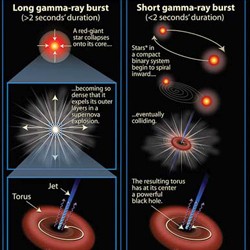Gamma-rays to sterilize Chandrayaan food!

Mysore, July 21 :- The Defence Food Research Laboratory (DFRL), which is entrusted with preparing food for payload scientists carrying India’s pride space mission Chandrayaan-2, is doing all it can to reach the high safety food standards on par with NASA. For the first time, Irradiation technology using Gamma-rays is proposed to sterilize the space foods.
“Irradiation is one of an emerging family of "end point" pasteurization technologies, which can be used to eliminate potential disease-causing microbes from food. Irradiation processed foods can be stored under ambient conditions with increased storage stability and microbiological safety giving extended life and eliminates potential pathogens. Since, Indian dishes are expected to dominate the Chandrayaan-2 menu, irradiation would gain further significance,” said Dr Bawa, director, DFRL speking exclusively to TNN here on Tuesday.
A Gamma-ray irradiation plant has been installed in DFRL by scientists of Bhabha Atomic Research Centre (BARC), recognizing its progressive research activities in lightweight military foods and civil food applications.
On how irradiation is done, a source at DFRL told this correspondent that the food is placed into containers, put on a conveyer belt, and passed through a shielded chamber. While it's in the chamber, the food is exposed to a radiation source. The specific procedure and the amount of radiation used depend on the type of food, and the reason the food is being irradiated. Foods may be irradiated wet or dry, thawed or frozen. Because the food is not heated by the irradiation process, it can immediately be stored, packaged or shipped.
The type of radiation used is known as ionizing radiation and it differs from the type of radiation produced, for example, by a microwave oven. Some irradiation facilities use gamma rays from a radioactive element like cobalt-60 or cesium-137. However, there are alternatives to these Gamma sources. One such option is the use of an electron beam or x-rays from a linear accelerator, the source added.
According to the Council for Agricultural Science and Technology, irradiation has been more thoroughly and systematically evaluated than any other food processing technology. Worldwide, over 40 countries have approved irradiation as a method for processing some types of foods, and over 20 countries are using the process commercially



